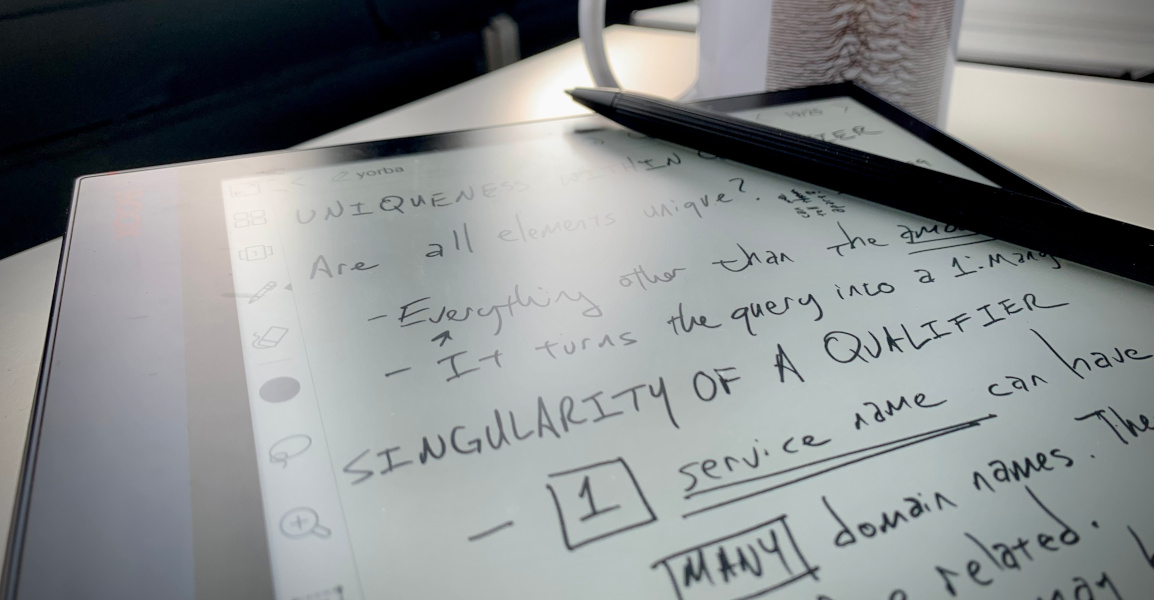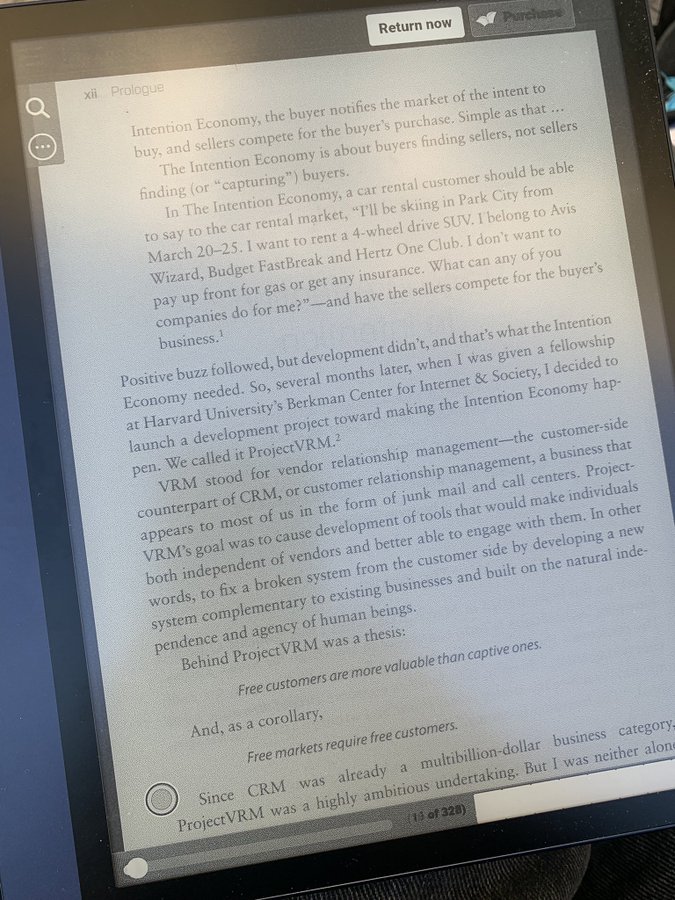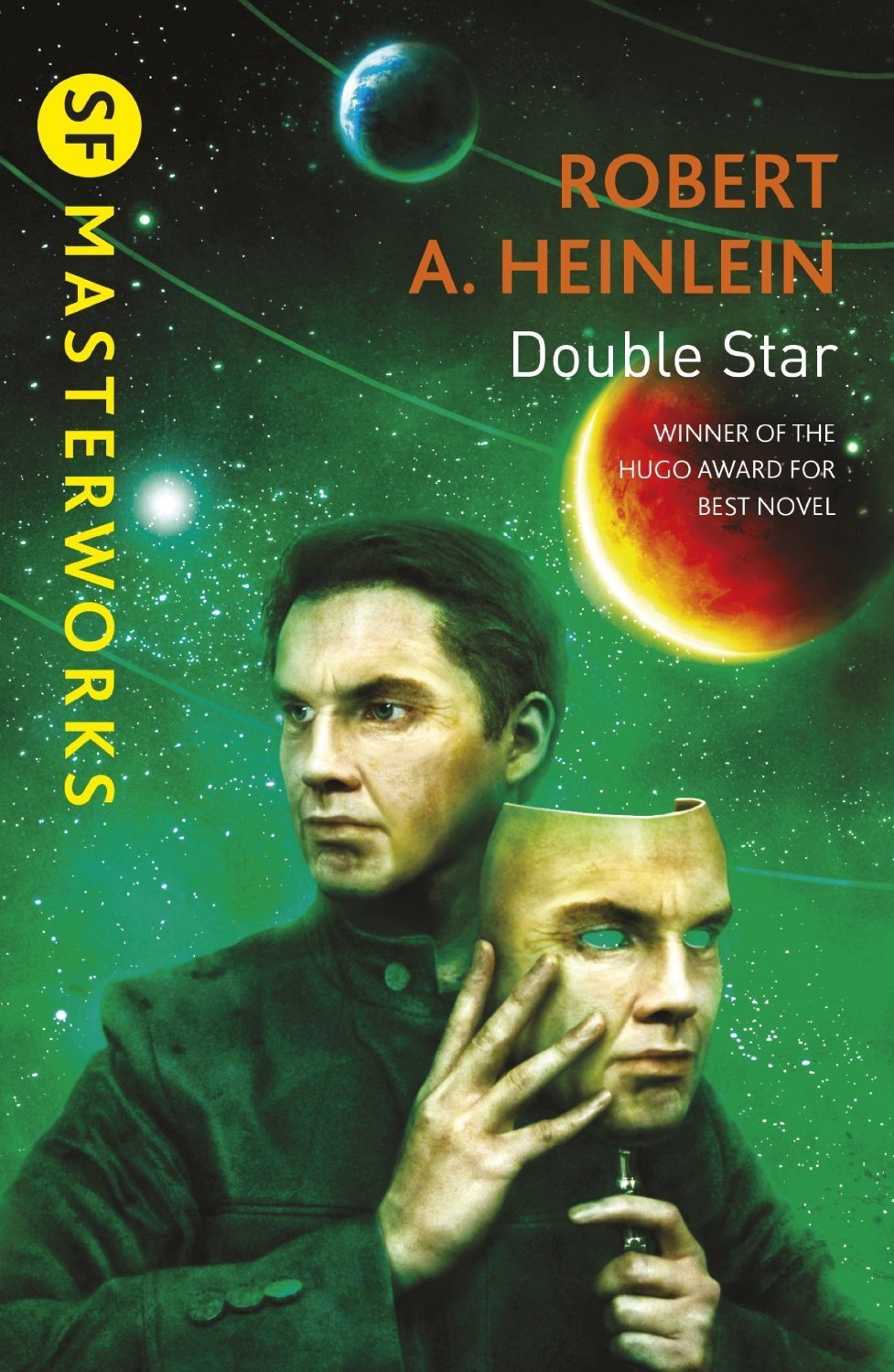
It is the best of times for electronic ink but it is the worst of times for actually reading eBooks.
I own two electronic ink (e-ink) devices: an inherited Amazon Kindle and a Onyx Boox Note Air. While they are fine pieces of hardware, both run terrible user-hostile software. This situation reflects the sorry state of the digital book publishing industry.
The stage was set in 2009 when Amazon reached into people’s Kindles and removed George Orwell’s 1984 at the publisher’s request. Somehow the megacorp seemed unaware that erasing a cultural artifact from a person’s collection without their knowledge or consent was definitively Orwellian. The fact that removing 1984 - the book about Big Brother’s overwhelming reach into our lives and collective memory - gave no one within Amazon pause is both deliciously ironic and completely dispiriting.The situation was brought about by the absurdity of copyright law. The copyright on 1984 runs until 2044 in the United States. But it has lapsed in many other countries. When the publisher realized that the wrong copies were in American Kindles, they requested Amazon remove the eBooks.
Such events are rare, but the reality remains: readers have few rights when it comes to reading digital books. It could be argued that our current misinformation epidemic makes access to books more important than ever. But eBook publishers and distributors are arbitrarily restricting access and the corporate benefits of eBook restrictions are dubious.
Ebooks have taken a different path than other small media formats such as music. Without getting into a comparative analysis, I’ll broadly assert that digital music files are generally distributed in a more open format than eBooks. Ebooks from Amazon, the largest retailer in the market, are saddled with digital rights management (DRM). These reader-hostile measures have not translated into adoption.A recent study by PricewaterhouseCoopers shows that eBook sales grew 8.6% in the lockdown, reversing several years of declining growth.
Meanwhile, digital music streaming is booming at the expense of paid music downloading. While downloads are shrinking on platforms like iTunes and Amazon, independent artists are seeing significant growth on sites like Bandcamp.People want to support artists. Check out these numbers from two of the site’s main promotional days during the 2020 pandemic: on 20/March fans spent $4.3 million spent on music (800,000 records in total) and merchandise and on 1/May fans spent $7.1 million.
Listeners have a fair choice. They are not locked into an ecosystem. If they choose to buy music, they can listen to it without restriction.
The biggest growth market in audio is podcasting, which is even more open than the music ecosystem. While comparing consumption habits across different mediums is an imperfect science, the growth of the music and audio broadcasting industry shows that treating people like customers and not criminals has some benefit.
This is the state of eBooks. While I use my e-ink hardware to read and markup research papers, sketch out ideas, and journal, eBooks remain the centerpiece of the ecosystem. And the sad state of the eBook translates directly into the overall e-ink experience.Reader Jeff Root observes that the e-ink screens themselves do limit how open any ecosystem could become: “The real limitation on eink devices is that the panel makers keep their drivers secret. So even a maker who wanted to produce a fully open device would be constrained by the legal restrictions of using an eink screen. And the screen manufacturers end up controlling what form-factors are possible, at what prices.”
The Unethical World of Onyx Boox
I had high expectations when I purchased the Boox Note Air earlier this year. At a glance, the device is less restricted than other e-ink readers and tablets. I’ve marked up dozens of academic papers (.pdf format), read books (.epub format), and even had a good experience reading a book from the Internet Archive’s Open Library.Reading The Intention Economy on the Internet Archive’s Open Library. Read my review of The Intention Economy here. 
The Boox software is open and it has no particular ties to any particular app or book store.Free and Open Source Software is critical infrastructure. It powers everything from the countless small webservers scattered throughout the globe to the largest data centers and fastest supercomputers in the world. We are the custodians of the ecosystem it helped create.
But the details are massively disappointing.
The manufacturer, Onyx, is an unrepentant violator of open source licenses. I can attest to the Boox’s documented habit of phoning home to mysterious servers in China. This is so frequent that I have to use Netguard to block these rogue transmissions. Fortunately, the device functions with or without WiFi. But the company has never explained the user benefit.A more comprehensive analysis is available via this HackerNews post.
The reality is that readers and writers do not demand more of the manufacturers; the nuance of privacy and free software isn’t important to most people. But we cannot expect consumers to become experts in everything they consume. The ecosystem itself must be healthy for writers, readers, and publishers to thrive. This is impossible if the eBook marketplace treats readers as criminals.
The Amazon Kindle’s Reader Hostility
Amazon is the center of the e-ink ecosystem. Its Kindle is wildly popular. The hardware is pleasant. It’s light and fits nicely in one hand. The display is easy on the eyes.
But as I detail in this website’s About page, eBooks from Amazon are locked down and distributed in a way that is hostile to both authors and readers. You don’t own the book. You cannot lend the book. Renting Kindle-compatible eBooks from the library is arduous and limited by artificial constraints; you literally need to return a book before another person can rent it.
When I want to search an Amazon eBook that I “own”, I have to log onto Amazon’s cloud computer. Further, the open .epub eBook format is not compatible with the Kindle; readers must use Amazon’s .mobi file format. Some .mobi files are incompatible with my device, but I have only discovered which ones after I purchase. I cannot even highlight my purchased Amazon eBooks without running into usage violations. Highlight lengths have arbitrary limitations. This is the output of an actual highlight from an actual Amazon eBook that I purchased:
==========
Finite and Infinite Games (Carse, James)
- Your Highlight on page 83 | Location 969-971 | Added on Tuesday, September 24, 2019 4:26:52 PM
<You have reached the clipping limit for this item>There were no warnings nor indications. I simply found out later that dozens of my highlights were not saved.
Reading Ethically
So how do I use my Kindle? No WiFi, no signing into amazon.com, load all books over USB.There are many other readers besides the Kindle! And many are more flexible. As reader Jeff Root points out, “The Kobo is a bare Linux kernel, with the vendor’s application running at boot. The software, due to the friendly way Kobo works, has been thoroughly documented, so all the pieces are well-known now. Firmware updates are similar; just download the latest, copy the Kobo.tgz file to the root of the device, disconnect and it will auto-upgrade. No WiFi or Kobo cloud-y things required.” He continues, “I’ve never really looked into [doing this with a Kindle]. I know Amazon will devote resources to making it harder and harder. Kobo makes it easier and easier; they even just introduced ‘sideload’ mode as a standard feature, making registration optional.” Reader ebi@khiar.net also recommends the Kobo Clara with KOReader and Plato installed. Kobo offers over 5 million DRM-free titles, including both ebooks and audiobooks. But Mozilla has called their reputation into question. Other options include the Boyue Likebook Mars and the Woxter Scriba for general literature (both via Dr. Lov) and the forthcoming Pine64. The Open Book is also something to keep an eye on.
To acquire books ethically, I first look at an author’s homepage. Direct purchase is the best option. No need for a middleman. For example, the author Cory Doctorow offers direct distribution.
The next stop is a publisher’s webpage. A publisher like Leanpub empowers authors and makes the experience joyful for readers. Tricycle publishes wonderful books on Buddhism. Manning and The Pragmatic Programmer sell high-quality DRM-free eBooks on programming. Unfortunately, O’Reilly, once a trail-blazing publisher in tech, is no longer selling books. I’m not familiar with open platforms like Open Libre and Open Book Publishers, but they look promising.
Fiction publishers like Ring of Fire Press also sell directly to readers. Arc Manor sells certain titles direct. I recently bought a Robert Heinlein eBookMy review of Heinlein’s Double Star is available here. 
from one of their imprints, Phoenix Pick.
I have two sources for classic texts. Standard eBooks embodies the care and attention that classic books deserve while Project Gutenberg offers the widest selection.Remember that different countries have different copyright laws. So Project Gutenberg Australia and Project Gutenberg Canada provide different books. The Free EBook Foundation does some interesting work to make Gutenberg a more robust platform.
Michael S. Hart founded Project Gutenberg in 1971 as a student at the University of Illinois. He believed in the plain text format; most books on Gutenberg are plain text to this day.To Hart’s credit, plain text has proven to be the most future-proof digital format. Plain text files that are decades old remain readable by contemporary computers.
But there is an incredible collection of eBooks on Gutenberg called the Magic Catalog. The catalog is available in Epub and Mobi so the books can be downloaded directly to your reader.Reader J. Sciarra in CT, USA brought the Magic Catalog to my attention. Sciarra calls it an incredible intellectual democratization and offers, “I have read more books that I never would have even known existed by simply playing what I call ‘Gutenberg Roulette’ going through the pages and downloading anything that looks promising.”
The final stop is the storefront. eBooks.com is considered best by Ethical Consumer and offers a DRM Free search. Smashwords “does not publish works containing digital rights management schemes that limit the customer’s ability to legally enjoy the author’s work.”
I know all this roaming around the internet is arduous. I wish buying eBooks was more like buying digital music. But this is the consequence of having a such a powerful gatekeeper for our collective knowledge.
Amazon eBooks afford readers few individual rights. They have refused to sell ebooks and audio books to libraries, they have bullied small publishers, and colluded with large publishers to set the price on eBooks.
All of these actions have an outsized impact because Amazon has outsized power. The status quo manifests in the hardware experience. If you have an e-ink experience that delights you, please let me know over eMail, Mastodon, or Twitter. I’m still looking.